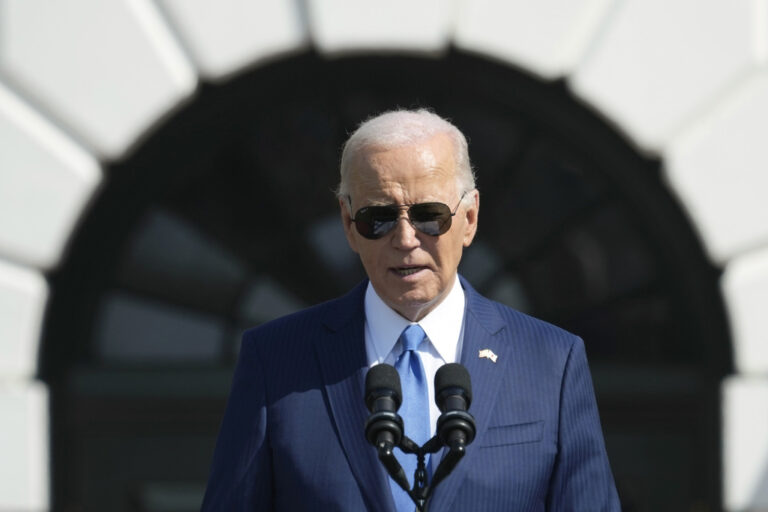 In rare bipartisan harmony, congressional leaders pushed a $214 billion bill permanently blocking physician Medicare cuts toward House passage Thursday, moving lawmakers closer to resolving a problem that has plagued them for years with a package bearing victories for both parties.
In rare bipartisan harmony, congressional leaders pushed a $214 billion bill permanently blocking physician Medicare cuts toward House passage Thursday, moving lawmakers closer to resolving a problem that has plagued them for years with a package bearing victories for both parties.
House approval would shift the spotlight to the Senate, where the measure’s prospects remain murky but were buoyed by President Barack Obama’s endorsement. The bill also has funds for health care programs for children and low-income people.
“From beginning to end, this bill is about access” to medical care, said Rep. Michael Burgess, R-Texas, one of several doctors who are House members who spoke in support of the measure.
Physician groups have long warned that the constant procession of threatened slashes in their Medicare fees could mean fewer doctors would treat the program’s elderly recipients.
In an era of sharp partisan differences that repeatedly yield gridlock on major issues, some lawmakers marveled at the compromise, which they’ve struggled to achieve for more than a decade.
“This place can work when we work together,” said Rep. Jim McGovern, D-Mass. He jokingly added, “Who knows, if this is contagious, maybe next week we’ll deal with global warming.”
Time was a factor. Congress planned to leave town by week’s end for a spring break, and physicians treating Medicare patients face a 21 percent fee cut on April 1 unless lawmakers act. If the Senate doesn’t give final approval before recessing, the federal agency that sends checks to doctors could delay processing them until lawmakers return to the Capitol.
Obama embraced the legislation Wednesday, saying at a White House event, “I’ve got my pen ready to sign a good bipartisan bill.”
With his backing and support from top House Democratic abortion-rights advocates, Senate Democratic objections began fading over the bill’s abortion restrictions and funds for children that they want increased.
“That makes it easier on our side,” No. 2 Senate Democratic leader Dick Durbin of Illinois said Wednesday. “But it’s not a done deal.”
In an unusual split with House Minority Leader Nancy Pelosi, D-Calif., some Senate Democrats and abortion-rights groups have complained that the bill would cement into permanent law abortion restrictions at community health centers. Pelosi, a longtime abortion-rights advocate who negotiated the legislation with House Speaker John Boehner, R-Ohio, has said its restrictions would be temporary and would simply continue limitations Congress has imposed annually since 1979.
Over the past two days, growing numbers of Senate Democrats have said the problem is less serious than they thought, including Minority Leader Harry Reid, D-Nev.
Democrats also wanted four more years of extra money for the Children’s Health Insurance Program, which serves 8 million low-income children, rather than the bill’s two years. Yet Democrats seemed increasingly eager to back the bill and claim that money as a triumph, along with its other funds for community health centers, which serve the poor, and to help some low-income people pay Medicare premiums.
The measure’s chief goal is replacing a 1997 budget-cutting law that tied doctors’ Medicare fees to overall economic growth. With medical costs growing, that formula has threatened deep reimbursement cuts that lawmakers have blocked 17 times since 2002, a ritual both parties want to end.
The nonpartisan Congressional Budget Office said the measure’s costs totaled $214 billion over the next decade. To pay for it, $141 billion would come from deeper budget deficits while the rest would be divided between Medicare recipients — mostly bigger monthly premiums for the highest earners — and providers like nursing homes.
Republicans touted the increased costs for upper-income Medicare beneficiaries as a win that would help restrain the $500-billion-a-year program and open the door for future overhauls.
Even so, conservatives were split. Rep. Jim Jordan, R-Ohio, said he opposed the measure because of its costs. Rep. Trent Franks, R-Ariz., said he was ready to support it because “it’s cheaper than doing it another 17 times” with temporary fixes.
(AP)






One Response
This shows that the “Affordable Care Act” aptly called Obama care has succeeded. It’s true that it has had a shaky start with much opposition, but President Obama has fought honorably and well against ignorance, corruption, and misguided ideology. He is also fighting another battle for a rapprochement between the USA and Cuba, which in the end will succeed, too. These two solid accomplishments put him in the ranks of the very good presidents.
It’s time to reduce support for the two state formula to lip service only. It looks like the Jews are moving from the West to Israel and the Arabs are moving from Israel to the West. It is best to be on the side of heaven and make it easier for Jews from America to easily get Social Security and Medicare in Israel, be on the American Embassy’s mailing list, and vote in American elections. Arabs who do not wish to live in a Jewish state or are fleeing war, poverty, or persecution should be welcomed to America as refugees and given relocation assistance.